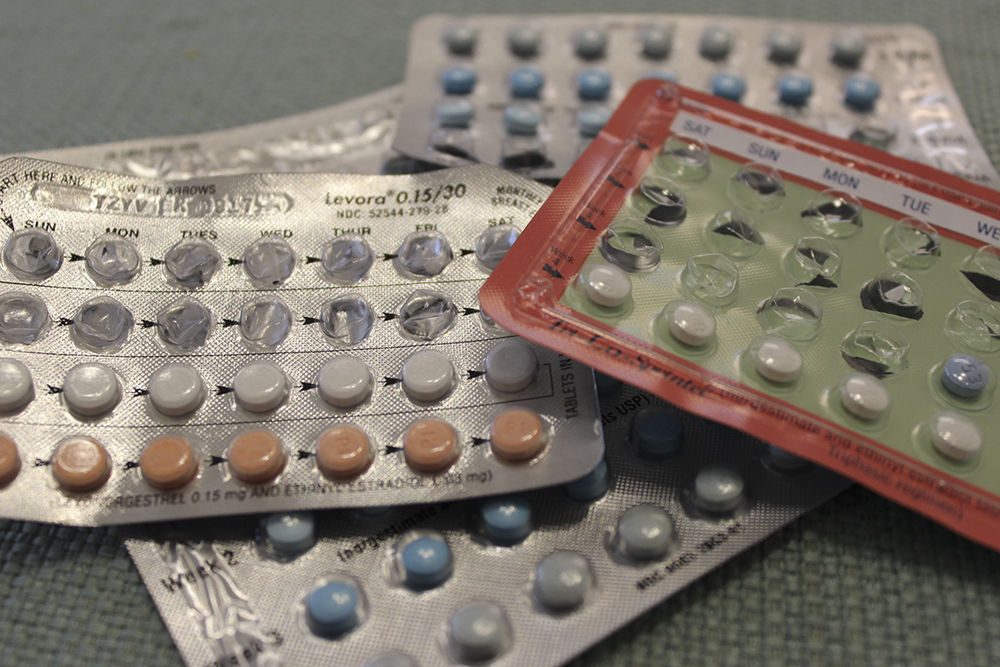The court’s decision in the Zubik v. Burwell case will affect Biola’s refusal of providing Plan B and Ella contraceptives on the account of possibly being abortive.
This may alter many other religious affiliated schools and nonprofits’ declination of provision of all Food and Drug Administration approved contraceptives. Oral arguments were presented before the Supreme Court of the United States on March 23 from six individual birth control lawsuits filed against the Department of Human Health and Services.
THE PROCESS
The arguments came from various religious affiliated organizations and colleges, which will affect Biola’s declination of providing all FDA approved contraceptives under the Affordable Care Act.
The case is in the process of determining whether the Department of Human Health and Services’ contraceptive-coverage mandate violates religious nonprofits’ right of not wanting to provide all FDA-approved contraceptives.
Although Biola is not against contraceptives, it is against morning-after pills such as FDA- approved Plan B and Ella. Biola’s Health Center is also careful of prescribing oral contraceptive pills due to not every female being a good candidate for the drug. They may have to be provided to Biola’s female employees through the ACA if the court decides not to exempt schools like Biola and other religious nonprofits from following Obamacare law.
PRESENTING THE CASE
Biola called for an injunction from the Seventh Circuit court in 2012 said Jerry Mackey, the university’s legal counsel, so the school would not have to abide by the ACA’s rule of having to supply all FDA approved contraceptives.
“You’re presenting your case to the court, basically, to the judge and saying ‘We think we have a really good chance of winning this case so in the meantime don’t apply the law against us until we have a chance to challenge it,’” Mackey said.
After the injunction was granted, SCOTUS took up the Zubik v. Burwell case, resulting in the Seventh Circuit court holding that injunction while SCOTUS makes a decision.
Despite Biola’s specific case not being judged before SCOTUS, other religious affiliated schools’ cases are being presented before the court.
“Our case is technically not before the court, but I believe there are 5 CCCU [schools] that are,” Mackey said.
interfere with implantation
As far as Biola’s stance against morning-after pills, Tamra Hocking, health center staff physician, said the pills are kindred to abortion, hence being called abortifacients.
“We really feel that those two types of conception are unethical because they have a very high probability of killing an embryo. Plan B and Ella work after conception,” Hocking said.
Ella is said to not be an abortion pill but only delays ovulation — egg release — up to five days after sex. However, females differ in menstrual cycle stage when taking the pill, therefore causing varied outcomes.
“When a woman takes [Ella] they don’t know exactly where they are in their cycle. All they know is that they want to kill whatever is in [their body],” Hocking said.
Ella can interfere with implantation of an early embryo when taken after ovulation, making the drug embryocidal, according to the European Medical Association.
Terminology is tricky
Plan B, on the other hand, contains progesterone, a hormone that allows an embryo to implant and develop. Progesterone, however, can also prevent pregnancy when taken in higher than normal doses.
“Terminology is tricky. If you’re not really pro-life then you don’t even consider [the embryo] viable life until it’s implanted, whereas in my belief and at Biola, we believe life begins at conception,” Hocking said.
A California law passed in 2013 that will take effect in April will allow females to obtain hormonal contraceptives from pharmacies without a prescription. Biola employees currently do not receive oral contraceptive pills through the Health Center. Students who need OCPs can attain them through careful inspection and approval from a Health Center physician. Both, employees and students will have access to OCPs without a prescription once this law takes effect.







